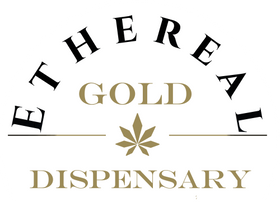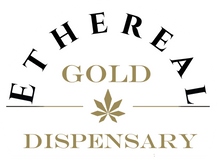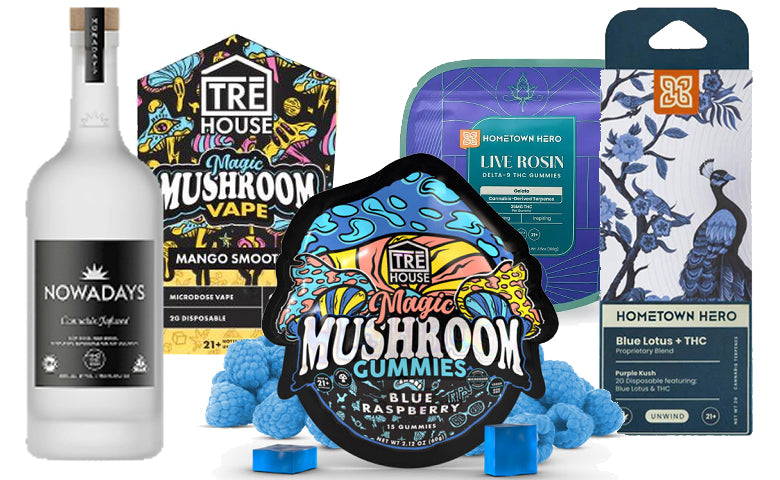As cannabis laws continue to evolve across the United States, we often see regulatory frameworks struggling to keep pace with market innovation. A current debate in Rhode Island (detailed in recent news reports) perfectly illustrates this challenge, specifically concerning hemp-derived THC beverages found in liquor stores and other retail outlets. While some legislators propose bans citing safety concerns, we at Ethereal Gold Dispensary believe there's a better path forward — one focused on rigorous testing and clear labeling for all products, not prohibition.
The Rhode Island Debate: Ban, Regulate, or Consolidate?
The situation in Rhode Island involves conflicting approaches. One proposed bill seeks to ban the sale of hemp-derived THC beverages outside of licensed cannabis dispensaries, driven by concerns that these products are often untested and create unfair competition for the highly regulated marijuana industry (although there are some who argue it is for tax reasons as hemp products are not taxed as marijuana). Another bill aims to solidify existing regulations under the Department of Business Regulation (DBR). Meanwhile, key state agencies, including the DBR and the Cannabis Control Commission, advocate for consolidating all cannabinoid regulation under the Cannabis Control Commission for consistency and safety.
Why Banning Isn't the Answer
We understand the concerns regarding untested products entering the market — consumer safety must always be paramount. However, history has shown that prohibition is often an ineffective solution. Banning popular products like hemp-derived THC beverages doesn't eliminate demand; it often just pushes consumers toward unregulated, potentially more dangerous illicit markets where safety standards are non-existent. A better approach focuses on ensuring the legal market is a safe and transparent one.
The Real Solution: Universal Testing and Labeling
The most effective way to address safety concerns and ensure a level playing field is through robust, mandatory cannabis product testing and transparent labeling for all consumable cannabinoid products, regardless of their source (hemp or marijuana) or how the THC was derived (naturally occurring or converted from CBD). This includes:
- Full-Panel Lab Testing: Verifying potency (specific cannabinoids like Delta-9 THC, CBD) and screening for harmful contaminants like pesticides, heavy metals, residual solvents, and microbes.
- Clear Labeling: Providing consumers with accurate information about cannabinoid content per serving and per package, ingredients, batch numbers, and manufacturing/expiration dates.
Implementing these standards universally tackles the root safety concerns head-on.
Consistent Hemp THC Regulation for Fairness and Safety
The Rhode Island debate also touches on market fairness. Disparate regulatory system —one for marijuana-derived products and another, potentially less stringent one for hemp-derived products — can create confusion and competitive imbalances. We support strong, consistent hemp THC regulation that aligns with standards applied to the state-regulated marijuana market. Ideally, consolidating oversight under a single, expert body like a Cannabis Control Commission, as suggested by RI agencies, can ensure uniform enforcement, eliminate regulatory gaps, prevent consumer confusion, and establish fair competition based on quality and compliance.
Ethereal Gold's Commitment: Setting the Standard
While regulatory debates continue, Ethereal Gold Dispensary has always prioritized the principles being discussed. We believe consumers deserve safe, reliable products, regardless of legislative complexities. That's why our unwavering commitment to full-panel lab testing and transparent labeling has been core to our mission from day one. Every hemp-derived product we sell, including our beverages, undergoes rigorous third-party testing to verify its potency and purity. We provide access to these results, setting the standard we believe all operators in this space should meet.
Prioritizing Safety Through Smart Regulation
The situation in Rhode Island serves as a valuable reminder of the challenges and opportunities in the evolving cannabis industry. Instead of resorting to bans that may harm consumers and responsible businesses, the focus should be on implementing smart, comprehensive regulations centered on universal cannabis product testing and clear labeling. Policies built on transparency and safety empower consumers, foster fair competition, and ensure the integrity of the legal cannabis market. You can always learn more about cannabis policy and safety to stay informed.
FAQ
Does EGD support banning untested THC products?
We support mandatory testing for all products. Products that cannot meet rigorous safety and labeling standards should not be on the market, but a blanket ban isn't the solution if testing and regulation can ensure safety.
Why does hemp THC need testing like marijuana THC?
Whether Delta-9 THC comes from hemp or marijuana, it's the same psychoactive compound. Furthermore, potential contaminants (pesticides, metals) can exist regardless of the plant's legal classification. Safety testing is crucial for all consumable products.
What is "full-panel" lab testing?
It goes beyond just checking potency (THC/CBD levels). It also screens for a wide range of potential contaminants, including heavy metals, pesticides, residual solvents, mycotoxins, and microbial contaminants.
Are Ethereal Gold's hemp drinks lab-tested?
Yes. Every batch of every consumable product sold by Ethereal Gold Dispensary, including beverages, undergoes full-panel third-party lab testing, with results readily available.
What's the difference between DBR & Cannabis Commission regulation (in RI example)?
They are separate state bodies. Typically, a Cannabis Commission has specialized expertise focused solely on cannabis (both marijuana and potentially hemp), while a DBR oversees many different types of businesses, potentially leading to different levels of specific expertise or regulatory focus for cannabis products.







